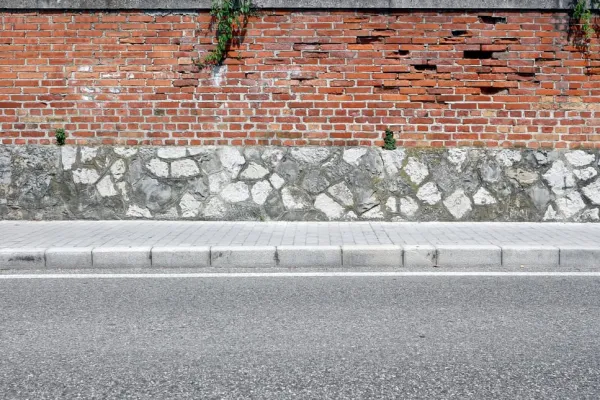People downsize houses for many different reasons.
Sometimes, it’s a choice; other times, it isn’t.
In the article below, we’ve outlined some of these reasons and the advantages and disadvantages of downsizing.
What is downsizing?
Downsizing is when you move into a smaller or less expensive residence.
It is the opposite of ‘upsizing’, which most buyers like to do.
Although there are many reasons to downsize (see below), it is generally done by older buyers.
Main reasons for downsizing
Financial difficulty
Arguably, the most common reason for downsizing is financial necessity.
This is when the owners can no longer afford to live there or find themselves in negative equity.
The downsizer’s income may decrease or their mortgage is more expensive. Energy bills are also more costly in a larger property.
Financial opportunity
You can also downsize for financial reasons but not out of necessity.
Downsizing might enable you to release equity and pay off your mortgage, which removes your monthly payments.
Or you could fund a dream retirement activity such as travelling.
Another example is using cash to buy a second house, or paying for your child’s university fees.
Reduced household members
You may see homeowners downsizing when family members have moved out in later life.
For example, people living in a four-bedroom house might find the house too big once children move out.
Reducing stress
Downsizing often reduces the stress in your life. Paying off your mortgage can remove a headache.
Large properties also need more maintenance which is not ideal in your later life.
Relocation
Some people are forced to downsize when they relocate. Your new town might not have properties of the same large size.
You may relocate because you change job or are moving closer to family.
Things to keep in mind when downsizing
There are complications involved with downsizing that you might not consider. You should keep all of these in mind before you jump into it.
Throwing away possessions
You may need to throw out your belongings before you complete the move. Your new house has less storage so you might not fit everything in there.
Difficult choices are often necessary. Measure your furniture to make sure it fits. Some families rent storage space as a short-term solution.
Less cars
A similar principle applies to the cars you own. Your new house may have less parking spaces on the permit or driveway.
One of the car owners might need to walk from another location where they can park regularly. Alternatively, selling a car could be a last resort.
Change in living conditions
Your interactions with other people in the house often change. You now live in close proximity and will share more spaces.
Bathrooms and bedrooms could now have more people in them. Some families establish new ground rules to live peacefully.
You will often be closer to your neighbours in your new home. You might need to alter your lifestyle, such as playing music quieter or hosting less parties.
The context of downsizing
Lastly, decide where your downsized home fits into your long-term plans.
Is this a permanent move or a stepping stone? The answer will influence your choice about which property is ideal.
Advantages of downsizing
Downsizing often gives you more financial freedom.
You can unlock equity tied up in the house and reduce or even rremove the headache of having a mortgage.
Downsizing can offer a chance to reconnect. It can occasionally bring family members closer together and lead to socialising with neighbours more.
Moving into a new house is can simply bring about change. It comes with a new street, neighbours and nearby amenities.
You may discover new people or places that you enjoy. These aspects are often not revealed until you complete the move.
Disadvantages of downsizing
It is difficult to leave a house that you are emotionally attached to. It is hard if you have lived there for a long time and have lots of memories.
Seeing someone else moving in can be equally distressing.
You will need to familiarise yourself with a new area in many cases. Aspects of your previous town that you loved may no longer exist. You could need to adjust to a different lifestyle or neighbours.
You could move further away from work or loved ones when you downsize.
Downsizing often forces you to throw away belongings that you love. Storage spaces are expensive, and your family may disagree about what deserves keeping.
There are alternatives to downsizing that could enable you to avoid doing it. We have explained some of these below.
Alternatives to downsizing
Equity release
If your goal is to release equity from your property, then Equity Release enables you to do this. You can access some of your money without moving out.
Speak to a financial advisor for guidance on this, as this idea has many pros and cons.
Renting rooms out
Spare rooms in your house can be rented out. This enables you to continue living there while raising your income. You may even make a new friend in the process.
Sell to a trusted seller
You could sell the house to someone who will allow you to continue living there. This enables you to cash-in and improve your financial situation without uprooting.
Family members or friends might be open to this. It depends on their financial resources.
Remortgaging
Remortgaging will sometimes get you a better deal. Speak to a mortgage adviser if you haven’t done this in a while. They may be able to reduce your monthly payments, so it becomes more affordable.
Reduce energy usage
Other ways to improve your financial situation include lessening your energy usage in the winter months.
If you can wear more layers of clothing or stay in the same room, it can help with your bills.
Making your property more energy efficient is also an option.
Increase your income
You could increase your income in other ways. Getting a second job could be viable. You can also make money from your house in different ways, such as renting out a spare garage or parking space.
















